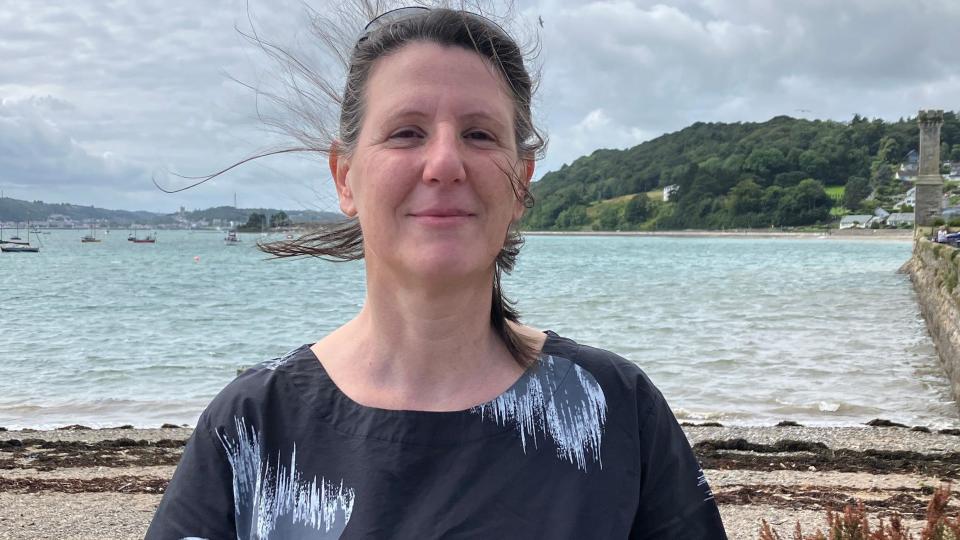Protests in holidaying hotspots across Europe have been triggered by tensions over mass tourism, with locals claiming overwhelming numbers of visitors are harming their way of life.
But climate change means more visitors are expected to escape rising temperatures on the continent and instead head towards cooler climes for trips away.
Changing global temperatures are having an impact on Wales’ tourism industry, for example, with a recent European Commission study showing a potential rise in global heat of 3-4C could see a 16% increase in visitors to west Wales.
But following protests by residents in places like Barcelona, Majorca and Venice in response to “over-tourism”, could places like Wales be at risk of becoming overwhelmed too?
Linda Osti, a senior lecturer in tourism management at Bangor University, said Wales could indeed experience “over-tourism” if visitor numbers continue to grow.
But she said the key to avoiding conflict with locals is to find solutions which benefit both people living in areas and the people visiting them.
“There is no sustainable or regenerative tourism without host communities,” she added.
“We need to create co-operation and make sure that tourism is profiting every member of the community.”


Ms Osti said that the term “over-tourism” was first coined by a journalist discussing Iceland in 2016.
“International tourism arrived in Iceland and what he noticed was there was a resentment of local people against tourism – so hopefully Wales would be acting before we get to that point,” she said.
“There is also a trust that needs to be rebuilt – we’ve arrived to a point where there is no more trust in the government and therefore trust needs to be created, and finally tolerance. Tolerance between all of the stakeholders.”


Even before global temperatures rise further, Welsh businesses have already noticed more overseas visitors – with Visit Wales saying the number of holidaymakers from Germany doubled between 2022 and 2023.
And the number of cruise ships coming to Wales has risen to 97 this year – 25% up on last year.
Tourists visiting the north of Wales this summer included families from France who said they wanted to escape the heat back home.
Fabian Bars, who had travelled from Paris with wife Amelie and their children to Ogwen Valley in Eryri, said: “We prefer this temperature. In Paris it’s too hot in summer.”
Mrs Bars said: “Before coming we were afraid of having rain during our holidays, but it’s nice and it’s not hot – it’s perfect.”


Elisabeth and Benjamin Veloppe visited Dolgarrog in Conwy from their home near Nantes with their children Wilhelmina and Aziraphale, and said extreme heat elsewhere was a factor in their decision.
Mr Veloppe said: “With children it’s very important because the night is too hot, we can’t walk easily in the afternoon – it’s really hard.”
Mrs Veloppe said: “In north Wales you have a lot of beautiful places, you can have walks, and you’ve got little parks for kids.”


Phil Scott from Ribride – a tour boat company on the Menai Strait between Anglesey and mainland Wales – said while summer is always busy it would be better to attract people outside peak times or the so-called “shoulder season” between the summer months and the winter.
He said: “We need the numbers of people in those shoulder seasons and older couples that aren’t bringing children with them.
“They’re a different type of visitor, their demographics are different, their spend is different and their needs are different.”


Anna Hume, who grew up on Anglesey and works at Ribride in the summer, agreed that a longer season would create employment.
“It’s great to have a summer job in tourism or hospitality, but there’s nothing to keep young people here all year round,” she said.
“There’s not enough jobs to support young people, then we kind of end up moving away and can’t afford to buy houses here because there’s not enough income.”
Frustrations about visitor numbers have already been felt recently, albeit on a smaller scale, after the popularity of Anglesey’s Llanddwyn Beach – helped by it being featured in HBO’s House of the Dragon – led to anger over traffic congestion.
Neville Evans, the area’s councillor with responsibility for leisure, tourism and maritime, said visitors should be pointed to places off the beaten track.
“Some of the more internal areas are not touched, so maybe it’s a question of trying to move the pressure away from some of the hotspots and concentrating more on communities that do not benefit without actually having an adverse effect on those communities as well.”







